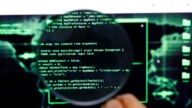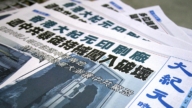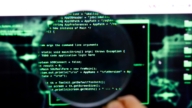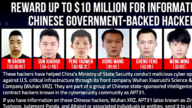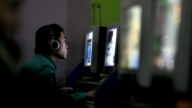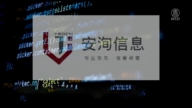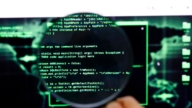【新唐人2011年8月2日讯】在中宣部对大陆传媒下达封杀令后,大量“温州动车事故”消息被转载到了互联网的微博上面,因此让事件的真相变得更加透明,“微博”的这项功能也让它从“社交工具”转变成了“媒体平台”,微博对中共政权造成了冲击。
7月29号,中共中宣部下达严厉封杀令,禁止大陆媒体报导“温州动车事故”,各大主流媒体临时调整版面,有媒体记者干脆把版面移到微博。中共过去通过组织监控社会的手段,在网络时代突然失去了效果。
《新唐人》资深评论员文昭谈到,过去中共只要垄断物质资源和专业人士,就能达到控制言论的目地,微博出现后改变了这种格局,它使得新闻成为草根化、平民化的运动。
文昭:“中共当局目前他的言论专制力量确实正在受互联网削弱,2009年搞个绿坝工程,2010年他想推的网路论坛发言实名制都没能够推行下去,这就说明他的话语霸权正在受到互联网的侵蚀。”
文昭认为,目前中国网民和中共政权可以说是一种博奕关系,网民是中共的一个对手,虽然不是一个力量均等的对手,但也不是完全受当局摆布的角色。双方都在揣测对方的空间还有多大。
源自美国Twitte的“微博”,在“7•23甬温铁路动车追尾事件”中,弥补了中国传统媒体无法自由报导的困境,即时的将事件现场信息发送出来。不过,在中共的监控下,“微博”无法进入传统媒体,相对的大多数使用的群众也局限在一线城市,还无法打进大部分人群,可是,主要的障碍还在于中共的独裁政体。
评论员杰森指出,西方的Twitte是“无中心”的,中国微博却像个集散地一样,这样中共当局方便于控制。
杰森:“比如说当时新疆当时出现纷争的时候,他一句话整个新疆网络就可以断掉,当然啦,他为了使这种权力将来用起来好使,那么他也知道他不会过分用,不会在每个事情上集中不让你说话,他就是说在小事上让你说话,而能让他在大事上有个严格控制。”
文昭表示,互联网技术的提升一方面也是信息壁垒的瓦解,中共不可能一方面跟进互联网技术进步的步伐,另一方面又维持信息封锁,同时还享受带来的商业利益。中共要解决不了这问题,那么必然这个问题就会解决掉中共,瓦解掉中共这个专制机器。
新唐人记者萧茗、李庭、周平采访报导。
From Microblogs to Media Platforms
Since The Central Propaganda Department issued a ban
on China’s media reports about “Wenzhou train accident",
information about the crash has appeared on microblogs
and the truth seems to be more transparent.
Microblogs turn from a “social tool" to “media platforms"
and have an impact on the communist regime too.
On July 29, China’s Central Propaganda Department issued
a strict ban on media coverage of “Wenzhou train accident."
Media in China instantly made adjustments in their forums;
correspondents simply moved their layout to microblogs.
Thus the Chinese regime by means of social control
is losing its effect in the Internet age at present.
Wen Zhao, a senior commentator for NTD said, in the past
the regime monopolized resources and professionals,
so they could control speech of the whole society. However,
the appearance of microblogs is changing this pattern.
This enables the news to go to grass roots level,
as a movement of the common people.
Wen Zhao: “Now the Chinese regime’s authoritarian power
is indeed weakened by the internet,
so they put forward a Green Dam project in 2009,
and they intended to push the real-name system
among Internet users in 2010.
This finally failed to eventuate, showing that
their hegemony is being eroded by the Internet."
Wen Zhao said that currently, the netizens and the regime
in China seem to play a game of mutual opponents.
Although they might not be equal forces at the moment,
both are competing for online popularity and space.
With its rapid message routing, Twitter has put Chinese
media in a difficult position regarding the train crash.
But under Chinese Communist Party’s (CCP) monitoring,
this microblog is unable to enter the conventional media.
A relative majority can use it in first-tier cities, but it cannot
reach wider majority, with the main barrier being the CCP.
Twitter commentator Jason points out that in the West,
Twitter has “no control center".
However, micro blogs in China are like a distribution center,
so it’s easier to be controlled by the communist authorities.
Jason: “For example, if there are disputes in Xinjiang,
they can cut off the entire network in Xinjiang.
Of course, to better control in the future, they will not
over-use it; they will not try to silence small groups.
They will let you talk about insignificant things freely,
but you have to let them have a strict overall control.”
Wen Zhao indicated that Internet technology improvement
also means information barrier disintegration.
It is impossible for CCP to follow technology and maintain
information blockade, while enjoying high commercial profits.
Thus the CCP would not be able to resolve this problem,
and this would inevitably dissolve the despotic CCP regime.
NTD reporters Xiao Ming, Li Ting and Zhou Ping



